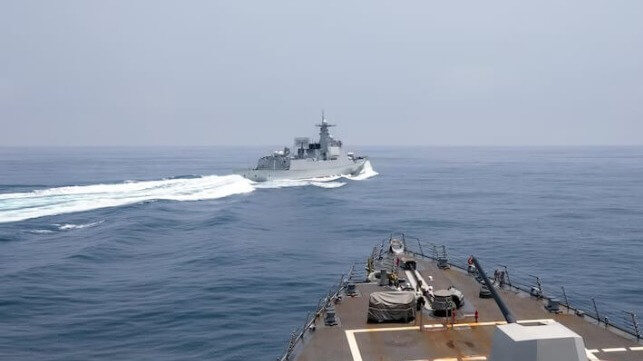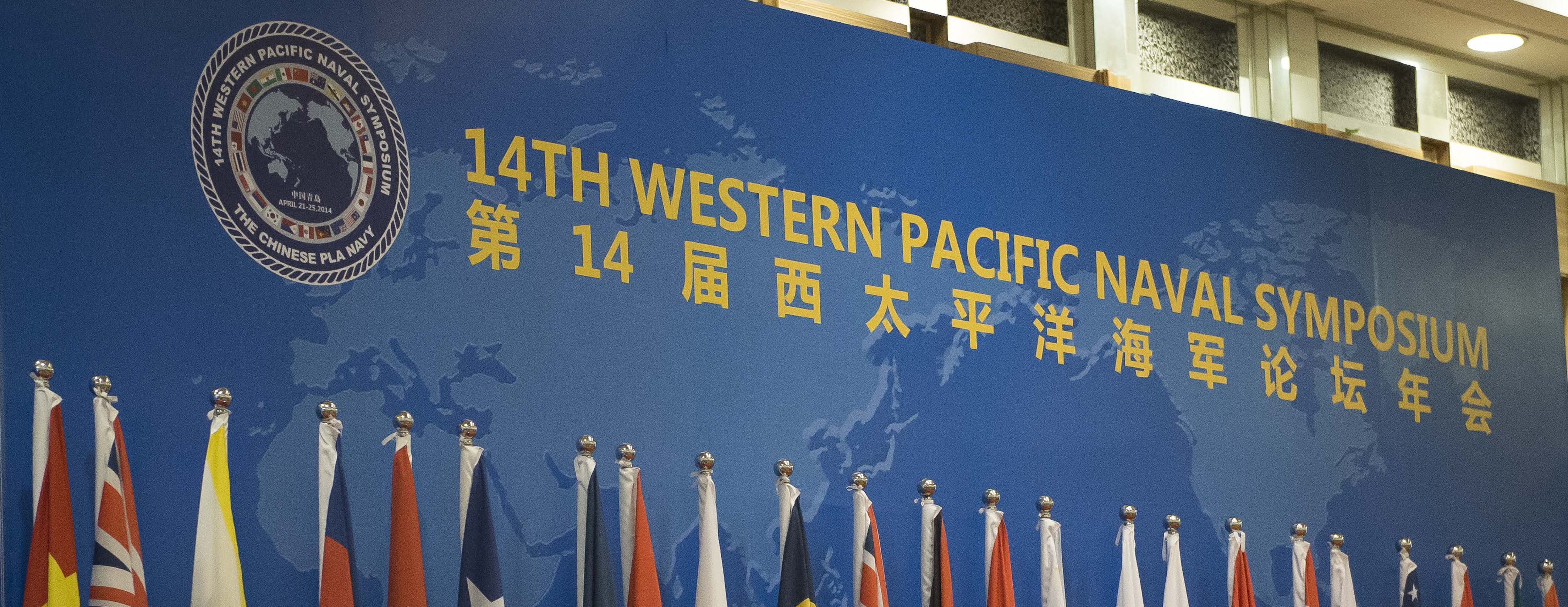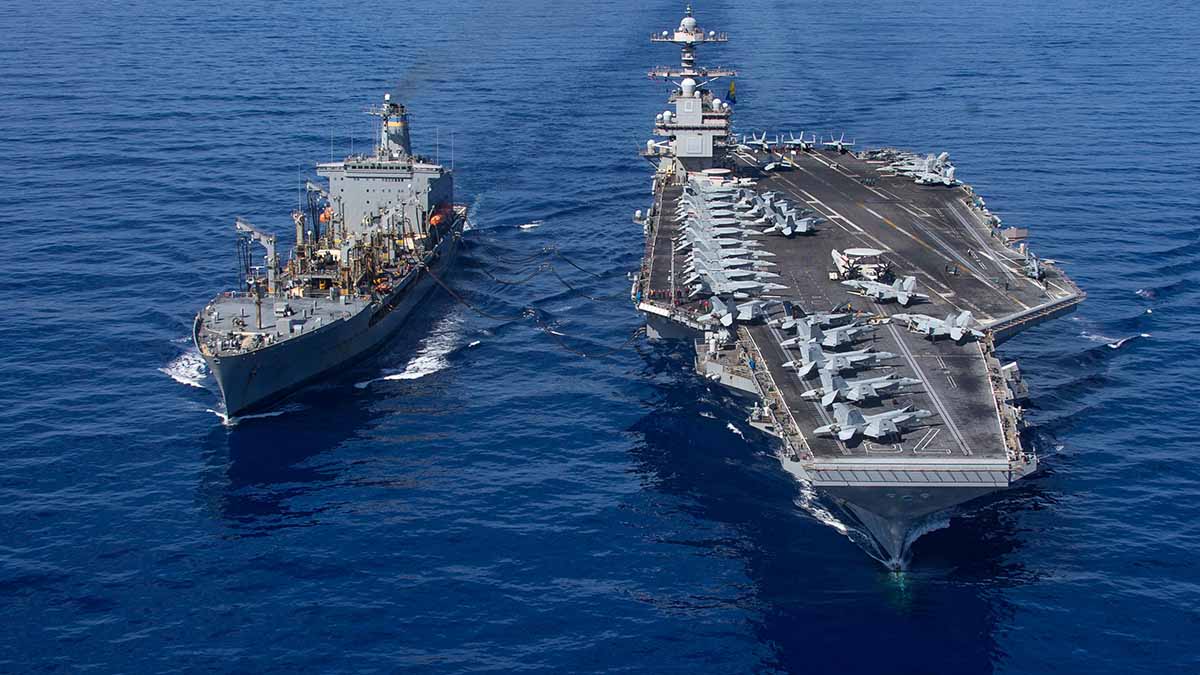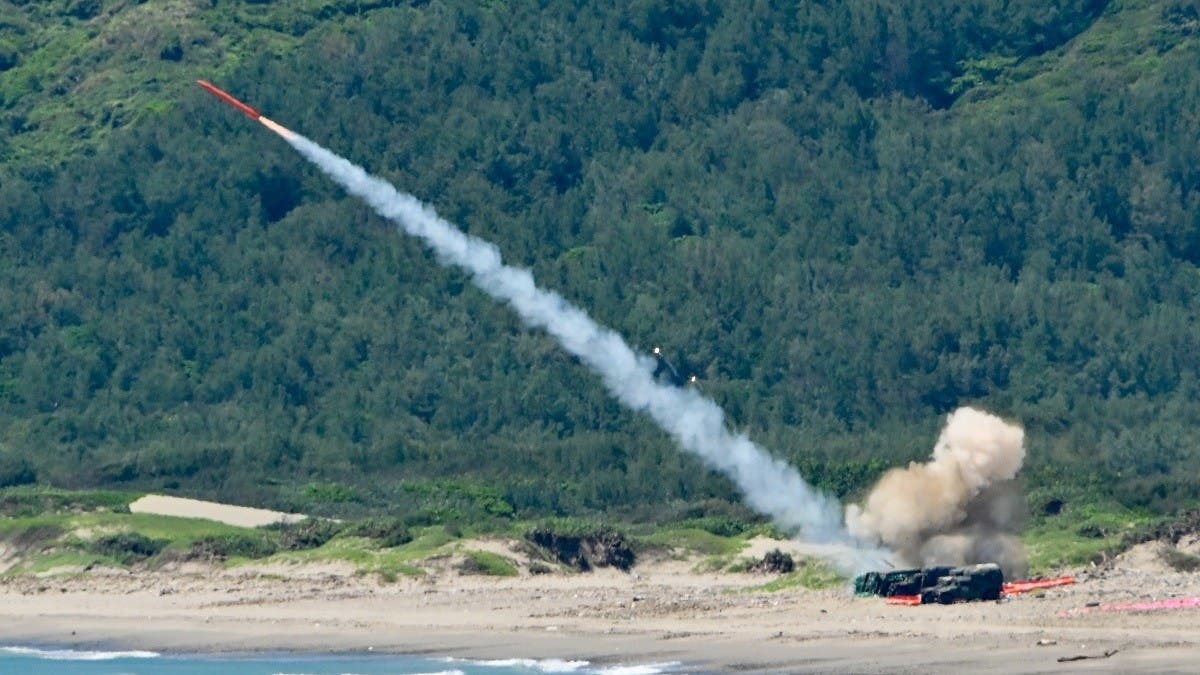Drills involving “multiple military assets” were referred to as “unplanned sea encounters” and did not have official status.
This suggests a tacit agreement wherein both parties maintain that the drills were the product of fortuitous contacts.
Exclusive: U.S. and Taiwan navies quietly held Pacific drills in April
Washington and Taipei have been expanding their military cooperation in recent years amid almost daily Chinese incursions into Taiwan's air defence identification zone and drills by Chinese forces near the island.
- U.S.-Taiwan military engagement, including visits and training, are kept low-key and are often not officially confirmed because of China's objection to any military contacts between Washington and Taipei. China claims democratically governed Taiwan as its own territory, which the island strongly rejects.
- The drills, which were not publicised, took place last month in the Western Pacific, according to the sources, who requested anonymity given the sensitivity of the matter.
2 A second source said the drills did not officially exist and were dubbed "unplanned sea encounters", pointing to a tacit agreement in which both sides claim the exercises were simply the result of coincidental encounters.
"It's like I am dining in this restaurant and you also happen to be here," the source said. "Then it looks like I am only sharing the same table with someone."
That source also said about half a dozen navy ships from both sides, including frigates and supply and support vessels, participated in the days-long exercises, which were designed to practice "basic" operations such as communications, refuelling and resupply.
Taiwan's navy said in a statement to Reuters that to handle unexpected scenarios at sea and to minimise "interference" with each another, the navy "acts in concert with the U.S.-promoted Code for Unplanned Encounters at Sea", also known as CUES.
"It's like I am dining in this restaurant and you also happen to be here," the source said. "Then it looks like I am only sharing the same table with someone."
That source also said about half a dozen navy ships from both sides, including frigates and supply and support vessels, participated in the days-long exercises, which were designed to practice "basic" operations such as communications, refuelling and resupply.
Taiwan's navy said in a statement to Reuters that to handle unexpected scenarios at sea and to minimise "interference" with each another, the navy "acts in concert with the U.S.-promoted Code for Unplanned Encounters at Sea", also known as CUES.
US and Taiwanese naval forces conducted covert Pacific drills in April – report
- "The Navy often makes contact with vessels of other countries and conducts encounter drills as needed," the statement said, without elaborating.
- The Pentagon declined to comment.
- Taiwan and the United States have no official diplomatic relationship, as Washington formally recognises Beijing but is bound by law to provide Taiwan with the means to defend itself and is the island's most important international backer.
3 A third source said although the "unplanned encounters" of the two navies involved mostly basic exercises, such drills are vital to ensure the two militaries can operate together in times of emergency.
- The source added that the two navies also practiced various tactical manoeuvres, including searching for underwater targets.
CUES was formulated about a decade ago to help de-escalate tensions between militaries at sea, providing guidelines such as safe speeds and distances, a common communications language, and what actions to take if a ship becomes disabled.
China's foreign ministry repeated its opposition to military ties between the U.S. and Taiwan, urging the U.S. to stop its "erroneous acts" of military collusion with Taiwan, and warning Taiwan authorities that seeking independence by force and resisting "reunification" would fail.
China's defence ministry did not immediately respond to a request for comment.
- Taiwan's navy chief, Tang Hua, last month visited the United States and discussed how to boost bilateral naval cooperation, Reuters reported.
- In response, China's foreign ministry said it firmly opposed "military collusion" between the United States and Taiwan.
China has long said Taiwan is China's most sensitive territorial issue, which is a major bone of contention in Sino-U.S. ties.
Beijing has not renounced the use of force to bring Taiwan under its control, while Taipei says the Chinese territorial claims are void as the People's Republic of China has never governed the island.
US-Taiwan relations
In early May 2024, Taiwan's Ministry of National Defense renewed a significant contract with the American Institute in Taiwan (AIT) for the Maritime Operations Support Center.
Beijing has not renounced the use of force to bring Taiwan under its control, while Taipei says the Chinese territorial claims are void as the People's Republic of China has never governed the island.
US and Taiwan navies conduct secret joint drills in the Pacific: Sources | Prothom Alo
Taiwan Navy and US Navy conduct covert Pacific exercises testing China's limits.
According to information published by CNA on May 14, 2024, the navies of the United States and Taiwan conducted joint drills in the Pacific in April, though officially they did not occur.
The Arleigh Burke-class guided-missile destroyer USS Chung-Hoon (DDG 93) and the Chinese Type 052D destroyer Suzhou. (Picture source: Dvids)
Over recent years, Washington and Taipei have strengthened their military ties due to frequent Chinese incursions into Taiwan's air defense identification zone and nearby military exercises by Chinese forces.
- U.S.-Taiwan military engagements, including visits and training exercises, are often discreet and unconfirmed publicly due to China's objections to such interactions.
- Sources indicate that these undisclosed drills took place in the Western Pacific.
US-Taiwan relations
In early May 2024, Taiwan's Ministry of National Defense renewed a significant contract with the American Institute in Taiwan (AIT) for the Maritime Operations Support Center.
- This contract, valued at NT$518.2 million (approximately USD 16 million), extends U.S. technical assistance until December 2028.
- The support includes advanced systems for anti-submarine warfare, leveraging capabilities of aircraft such as the P-3C Orion, which are crucial for Taiwan's maritime defense.
- This legislative action directs the U.S. Secretary of Defense to prioritize the delivery of defense articles and services to Taiwan.
- $300 million in foreign military financing and
- $400 million for the Countering PRC Influence Fund, underscoring the U.S. commitment to Taiwan’s security.
.gif)

.gif)




.gif)


)



No comments:
Post a Comment